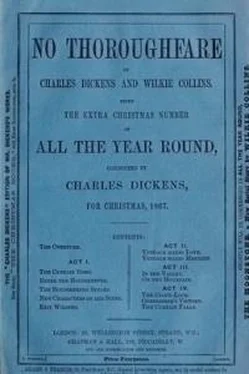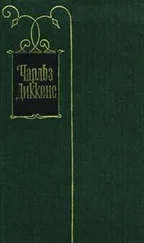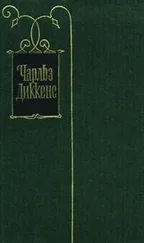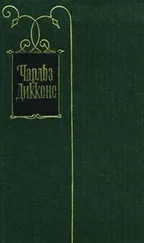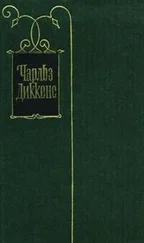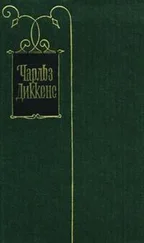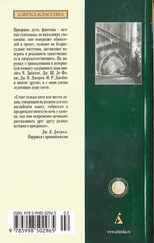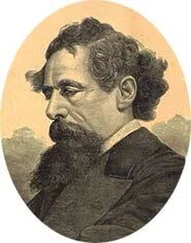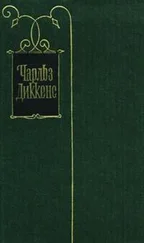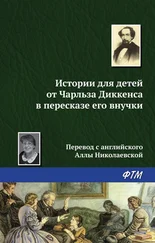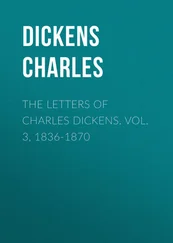Чарльз Диккенс - No Thoroughfare
Здесь есть возможность читать онлайн «Чарльз Диккенс - No Thoroughfare» весь текст электронной книги совершенно бесплатно (целиком полную версию без сокращений). В некоторых случаях можно слушать аудио, скачать через торрент в формате fb2 и присутствует краткое содержание. Год выпуска: 2014, Издательство: epubBooks Classics, Жанр: Классическая проза, на английском языке. Описание произведения, (предисловие) а так же отзывы посетителей доступны на портале библиотеки ЛибКат.
- Название:No Thoroughfare
- Автор:
- Издательство:epubBooks Classics
- Жанр:
- Год:2014
- ISBN:нет данных
- Рейтинг книги:5 / 5. Голосов: 1
-
Избранное:Добавить в избранное
- Отзывы:
-
Ваша оценка:
- 100
- 1
- 2
- 3
- 4
- 5
No Thoroughfare: краткое содержание, описание и аннотация
Предлагаем к чтению аннотацию, описание, краткое содержание или предисловие (зависит от того, что написал сам автор книги «No Thoroughfare»). Если вы не нашли необходимую информацию о книге — напишите в комментариях, мы постараемся отыскать её.
No Thoroughfare — читать онлайн бесплатно полную книгу (весь текст) целиком
Ниже представлен текст книги, разбитый по страницам. Система сохранения места последней прочитанной страницы, позволяет с удобством читать онлайн бесплатно книгу «No Thoroughfare», без необходимости каждый раз заново искать на чём Вы остановились. Поставьте закладку, и сможете в любой момент перейти на страницу, на которой закончили чтение.
Интервал:
Закладка:
"Call me George."
She laid her head on his bosom. All her heart went out to him at last. "George!" she whispered.
"Say you love me!"
Her arms twined themselves gently round his neck. Her lips, timidly touching his cheek, murmured the delicious words—"I love you!"
In the moment of silence that followed, the sound of the opening and closing of the house–door came clear to them through the wintry stillness of the street.
Marguerite started to her feet.
"Let me go!" she said. "He has come back!"
She hurried from the room, and touched Madame Dor's shoulder in passing. Madame Dor woke up with a loud snort, looked first over one shoulder and then over the other, peered down into her lap, and discovered neither stockings, worsted, nor darning–needle in it. At the same moment, footsteps became audible ascending the stairs. "Mon Dieu!" said Madame Dor, addressing herself to the stove, and trembling violently. Vendale picked up the stockings and the ball, and huddled them all back in a heap over her shoulder. "Mon Dieu!" said Madame Dor, for the second time, as the avalanche of worsted poured into her capacious lap.
The door opened, and Obenreizer came in. His first glance round the room showed him that Marguerite was absent.
"What!" he exclaimed, "my niece is away? My niece is not here to entertain you in my absence? This is unpardonable. I shall bring her back instantly."
Vendale stopped him.
"I beg you will not disturb Miss Obenreizer," he said. "You have returned, I see, without your friend?"
"My friend remains, and consoles our afflicted compatriot. A heart–rending scene, Mr. Vendale! The household gods at the pawnbroker's—the family immersed in tears. We all embraced in silence. My admirable friend alone possessed his composure. He sent out, on the spot, for a bottle of wine."
"Can I say a word to you in private, Mr. Obenreizer?"
"Assuredly." He turned to Madame Dor. "My good creature, you are sinking for want of repose. Mr. Vendale will excuse you."
Madame Dor rose, and set forth sideways on her journey from the stove to bed. She dropped a stocking. Vendale picked it up for her, and opened one of the folding–doors. She advanced a step, and dropped three more stockings. Vendale stooping to recover them as before, Obenreizer interfered with profuse apologies, and with a warning look at Madame Dor. Madame Dor acknowledged the look by dropping the whole of the stockings in a heap, and then shuffling away panic–stricken from the scene of disaster. Obenreizer swept up the complete collection fiercely in both hands. "Go!" he cried, giving his prodigious handful a preparatory swing in the air. Madame Dor said, "Mon Dieu," and vanished into the next room, pursued by a shower of stockings.
"What must you think, Mr. Vendale," said Obenreizer, closing the door, "of this deplorable intrusion of domestic details? For myself, I blush at it. We are beginning the New Year as badly as possible; everything has gone wrong to–night. Be seated, pray—and say, what may I offer you? Shall we pay our best respects to another of your noble English institutions? It is my study to be, what you call, jolly. I propose a grog."
Vendale declined the grog with all needful respect for that noble institution.
"I wish to speak to you on a subject in which I am deeply interested," he said. "You must have observed, Mr. Obenreizer, that I have, from the first, felt no ordinary admiration for your charming niece?"
"You are very good. In my niece's name, I thank you."
"Perhaps you may have noticed, latterly, that my admiration for Miss Obenreizer has grown into a tenderer and deeper feeling—?"
"Shall we say friendship, Mr. Vendale?"
"Say love—and we shall be nearer to the truth."
Obenreizer started out of his chair. The faintly discernible beat, which was his nearest approach to a change of colour, showed itself suddenly in his cheeks.
"You are Miss Obenreizer's guardian," pursued Vendale. "I ask you to confer upon me the greatest of all favours—I ask you to give me her hand in marriage."
Obenreizer dropped back into his chair. "Mr. Vendale," he said, "you petrify me."
"I will wait," rejoined Vendale, "until you have recovered yourself."
"One word before I recover myself. You have said nothing about this to my niece?"
"I have opened my whole heart to your niece. And I have reason to hope—"
"What!" interposed Obenreizer. "You have made a proposal to my niece, without first asking for my authority to pay your addresses to her?" He struck his hand on the table, and lost his hold over himself for the first time in Vendale's experience of him. "Sir!" he exclaimed, indignantly, "what sort of conduct is this? As a man of honour, speaking to a man of honour, how can you justify it?"
"I can only justify it as one of our English institutions," said Vendale quietly. "You admire our English institutions. I can't honestly tell you, Mr. Obenreizer, that I regret what I have done. I can only assure you that I have not acted in the matter with any intentional disrespect towards yourself. This said, may I ask you to tell me plainly what objection you see to favouring my suit?"
"I see this immense objection," answered Obenreizer, "that my niece and you are not on a social equality together. My niece is the daughter of a poor peasant; and you are the son of a gentleman. You do us an honour," he added, lowering himself again gradually to his customary polite level, "which deserves, and has, our most grateful acknowledgments. But the inequality is too glaring; the sacrifice is too great. You English are a proud people, Mr. Vendale. I have observed enough of this country to see that such a marriage as you propose would be a scandal here. Not a hand would be held out to your peasant–wife; and all your best friends would desert you."
"One moment," said Vendale, interposing on his side. "I may claim, without any great arrogance, to know more of my country people in general, and of my own friends in particular, than you do. In the estimation of everybody whose opinion is worth having, my wife herself would be the one sufficient justification of my marriage. If I did not feel certain—observe, I say certain—that I am offering her a position which she can accept without so much as the shadow of a humiliation—I would never (cost me what it might) have asked her to be my wife. Is there any other obstacle that you see? Have you any personal objection to me?"
Obenreizer spread out both his hands in courteous protest. "Personal objection!" he exclaimed. "Dear sir, the bare question is painful to me."
"We are both men of business," pursued Vendale, "and you naturally expect me to satisfy you that I have the means of supporting a wife. I can explain my pecuniary position in two words. I inherit from my parents a fortune of twenty thousand pounds. In half of that sum I have only a life–interest, to which, if I die, leaving a widow, my widow succeeds. If I die, leaving children, the money itself is divided among them, as they come of age. The other half of my fortune is at my own disposal, and is invested in the wine–business. I see my way to greatly improving that business. As it stands at present, I cannot state my return from my capital embarked at more than twelve hundred a year. Add the yearly value of my life–interest—and the total reaches a present annual income of fifteen hundred pounds. I have the fairest prospect of soon making it more. In the meantime, do you object to me on pecuniary grounds?"
Driven back to his last entrenchment, Obenreizer rose, and took a turn backwards and forwards in the room. For the moment, he was plainly at a loss what to say or do next.
"Before I answer that last question," he said, after a little close consideration with himself, "I beg leave to revert for a moment to Miss Marguerite. You said something just now which seemed to imply that she returns the sentiment with which you are pleased to regard her?"
Читать дальшеИнтервал:
Закладка:
Похожие книги на «No Thoroughfare»
Представляем Вашему вниманию похожие книги на «No Thoroughfare» списком для выбора. Мы отобрали схожую по названию и смыслу литературу в надежде предоставить читателям больше вариантов отыскать новые, интересные, ещё непрочитанные произведения.
Обсуждение, отзывы о книге «No Thoroughfare» и просто собственные мнения читателей. Оставьте ваши комментарии, напишите, что Вы думаете о произведении, его смысле или главных героях. Укажите что конкретно понравилось, а что нет, и почему Вы так считаете.
